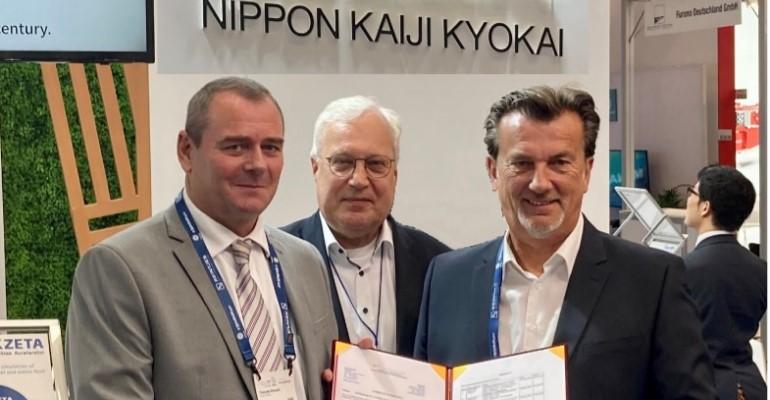“The Liberian Registry has proven that international collaboration between key quality stakeholders is the recipe for success to unlock the potential to decarbonise international shipping. Going forward, we are dedicated to elevating our JIP concept to new heights to further benefits of all our co-operation partners including shipowners/operators,” said Alfonso Castillero, CEO of LISCR.
The nature of these JIPs are groundbreaking and varied, from testing and verification of second generation bio-fuels, hydrogen- and ammonia-fueled vessels, a 40,000 cu m CO2 Carrier design,a 40,000 cu m LNG FSRU, a Liquid Hydrogen Carrier and to new materials for gas cargo and gas fuel tanks, as well as verifying the effectiveness of underwater hull air lubrication systems and other innovative technologies and design solutions.
The latest JIP was with LR Shipdesign AG, Movena Group and ClassNK. In the specific project the Liberian Registry attended several model tests at HSVA in Hamburg, Germany, to witness, assess and validate the performance improvement for an already optimised 76,000 dwt bulk carrier design.
This and all the other JIPs provides the Liberian Registry with an invaluable insight into a large range of feasible solutions to support decarbonisation of international shipping.
To comply with the new EEXI (Efficiency Existing Ship Index) and CII requirements that will enter into force November this year and effective from 1 January 2023, many shipowners may opt for the easiest solution to install an engine power limitation (EPL) or shaft power limitation (ShaPoLi). The overall conclusion could potentially be that applying the EPL/ShaPoLi solution will ultimately result in higher GHG emissions and less efficient vessels.
The Liberian Registry is a flag Administration and not ship designer, however its participation in ship design JIPs together with ship designers, shipyards, classification societies, engine manufacturers, innovative technology companies and shipowners provides invaluable insight into a large range of solutions to decarbonise international shipping, while at the same time enhance the vessels competitiveness and demonstrate compliance with the regulatory framework.
Copyright © 2024. All rights reserved. Seatrade, a trading name of Informa Markets (UK) Limited.
Add Seatrade Maritime News to your Google News feed.  |

